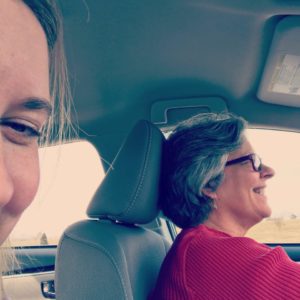Each new school year brings notebooks, backpacks, water bottles, and, at FSA, goal setting conferences. For two days in September, parents and caretakers are welcomed into classrooms to meet with their student’s advisor, who is also their homeroom teacher. These conferences involve parents in relationship-building and goal-setting that takes place during the initial weeks of school.
Middle school students and teachers begin the year with activities that build positive connections in their classroom communities. During extra homeroom sessions and in academic classes, students are invited to consider their “hopes and dreams” for the upcoming year and to write them down. They’re asked to reflect on the “more” they’d like to explore and develop as their own. After students spend time opening themselves up to the possibilities, they are given time and support to set specific, actionable, and realistic goals that will help them stretch into their potential.
When an advisor conferences with a student’s parent(s)/caregiver(s), they bring their knowledge of the hopes, dreams, and goals the student has articulated. Advisors also bring their developing sense of the student during different types of activity and different parts of the school day. They strive to discover and affirm how a student’s goodness manifests in daily actions and interactions. Mindful of the whole student, advisors draft goals for each advisee’s academic, social, and emotional growth, along with questions to ask a student’s parent(s).
During conferences, parents add their hopes and dreams for the school year, along with any questions, concerns, or information they wish to add. This information sharing leads to the development of a few significant goals tailored to the particular student’s strengths, growth areas, and learning style. Action and resource plans are discussed as needed to ensure appropriate scaffolding and support. Parents and teachers then follow-up to discuss these goals with their students and to develop routines and strategies for consistent practice and incremental progress. A key part of follow-up is eliciting and listening to student input.
A strong home-school partnership sustains and enriches student learning and personal growth. The “whole” child is truly expansive and complex. The purpose of goal setting is to support students in stretching as they claim more of their potential, more knowledge, more strategies, more resilience, more skills, more kindness, more connection, more justice, and more joy. Conferences provide an early and important opportunity for the important adults in a student’s life to share information, listen carefully to each other, and begin a dialogue that will evolve over the course of the school year and often beyond.
